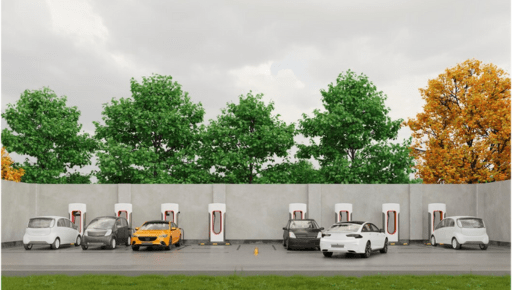The rise of electric vehicles (EVs) is driving a transformation in how we think about urban spaces. As more businesses and cities embrace sustainability, commercial EV charger installation is becoming an essential part of the infrastructure. This shift is not just about cleaner energy; it’s about redefining urban environments to accommodate future mobility needs.
The Growing Demand for EV Charging Infrastructure
As the adoption of electric vehicles continues to increase, so does the need for accessible and reliable charging points. Commercial EV charger installation plays a critical role in meeting this demand. Urban areas, where space is limited, are increasingly prioritizing the installation of charging stations in strategic locations. From shopping centers to office buildings, businesses are recognizing the value of providing charging options for customers and employees.
Boosting Sustainability in Urban Development
The integration of commercial EV charger installation into urban spaces contributes significantly to sustainability efforts. EVs have zero emissions, making them a cleaner alternative to traditional vehicles. By installing chargers in commercial areas, cities reduce the reliance on fossil fuel-powered transportation. This helps to decrease air pollution and improve the overall quality of life for residents.
Commercial EV Charger Installation as a Revenue Stream
For businesses, investing in commercial EV charger installation presents an opportunity to generate additional revenue. Many companies are realizing that offering EV charging services can be a profitable venture. Charging stations provide a steady stream of customers who may spend time shopping, dining, or engaging in other activities while their vehicles charge.
This model is especially attractive in high-traffic areas where there is a growing population of electric vehicle owners. As commercial EV charger installation continues to rise, businesses that provide charging infrastructure will be well-positioned to capitalize on this emerging market. Furthermore, some cities offer incentives and rebates to businesses that install EV chargers, reducing the financial burden of these installations.
Impact on Real Estate and Urban Planning
Commercial EV charger installation is changing the way urban spaces are planned and developed. Real estate developers are now factoring in the need for charging stations as part of their property designs. In some cities, the installation of chargers has become a legal requirement for new commercial developments. This integration ensures that urban spaces remain relevant as the shift to electric vehicles becomes the new normal.
Challenges of Commercial EV Charger Installation
While the benefits of commercial EV charger installation are clear, challenges remain. The installation process can be complex and expensive. Businesses need to navigate regulations, secure permits, and potentially invest in electrical upgrades to support the charging stations. These costs can be a barrier for smaller businesses that want to participate in the transition to electric vehicles.
Looking Toward the Future of Urban Mobility
The future of urban mobility will be shaped by the continued expansion of commercial EV charger installation. As electric vehicles become more mainstream, cities will need to adapt to the changing landscape. This will likely mean integrating charging stations into more diverse locations, from residential areas to public transit hubs.
Conclusion
Commercial EV charger installation is not just a trend; it’s a critical component of urban development in the 21st century. As cities embrace electric vehicles and sustainable practices, these charging stations are paving the way for more connected, eco-friendly communities. The transformation is just beginning, and the potential for growth and innovation is vast.


